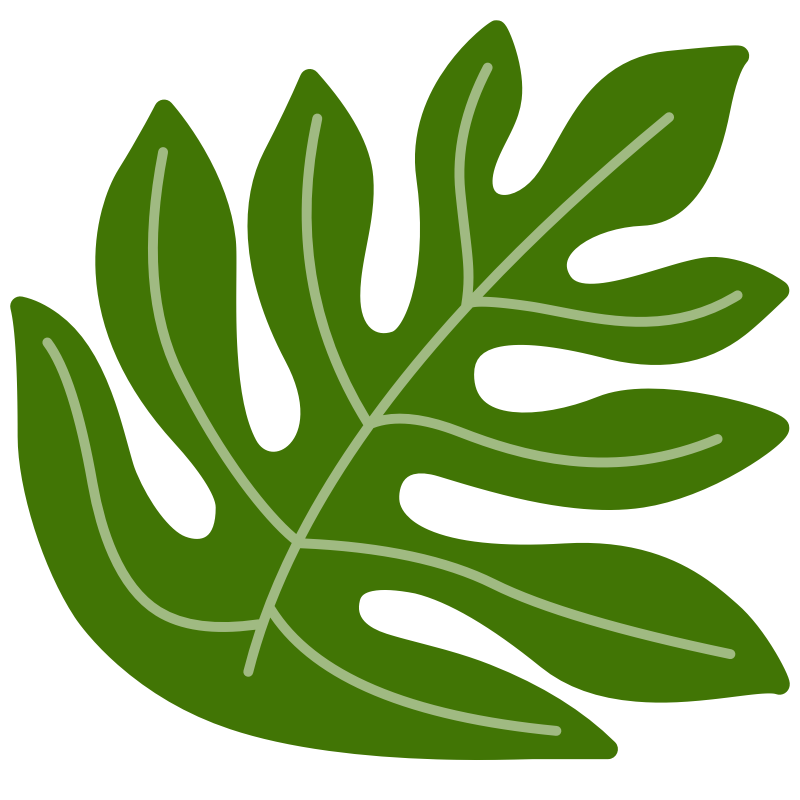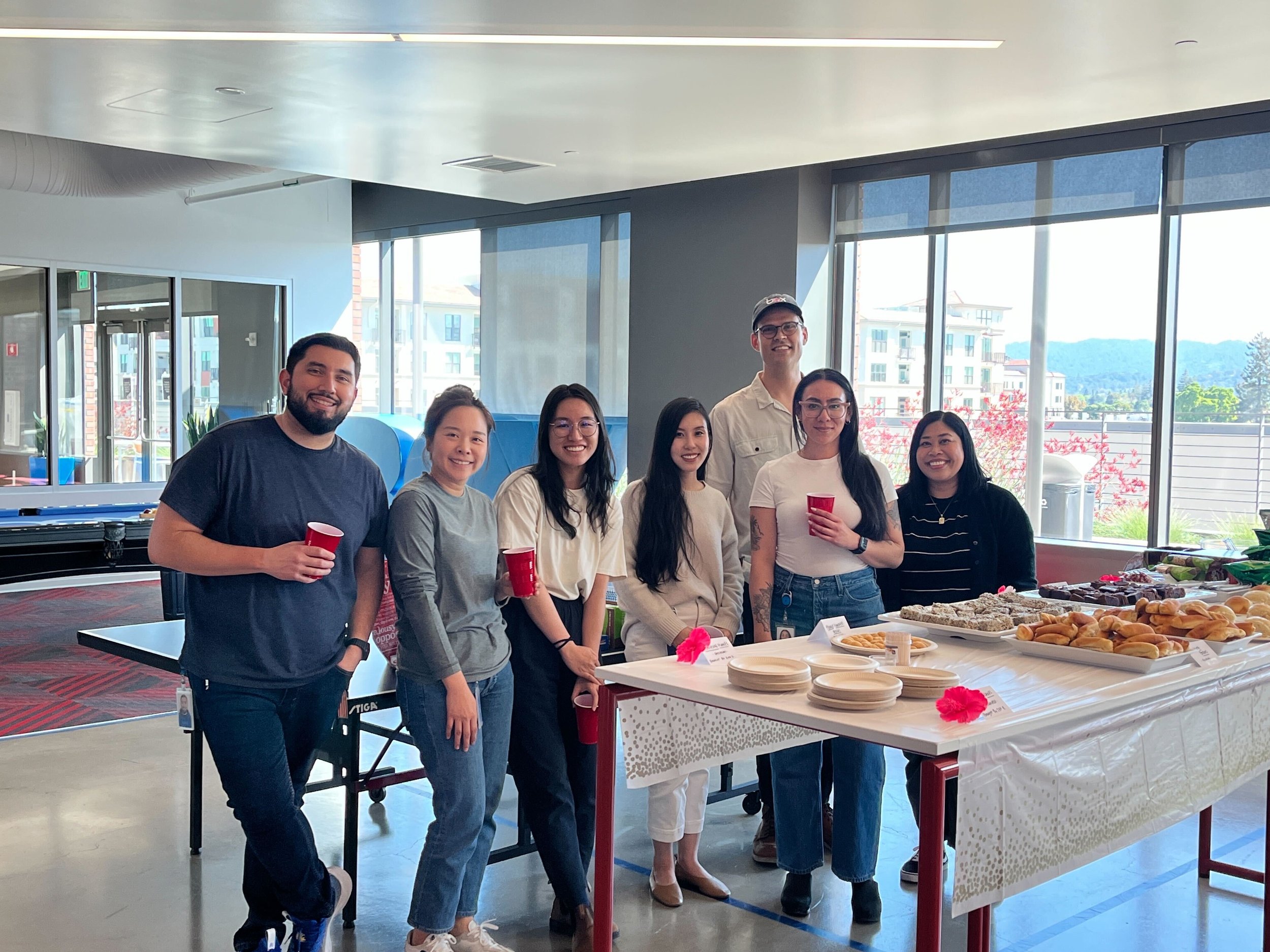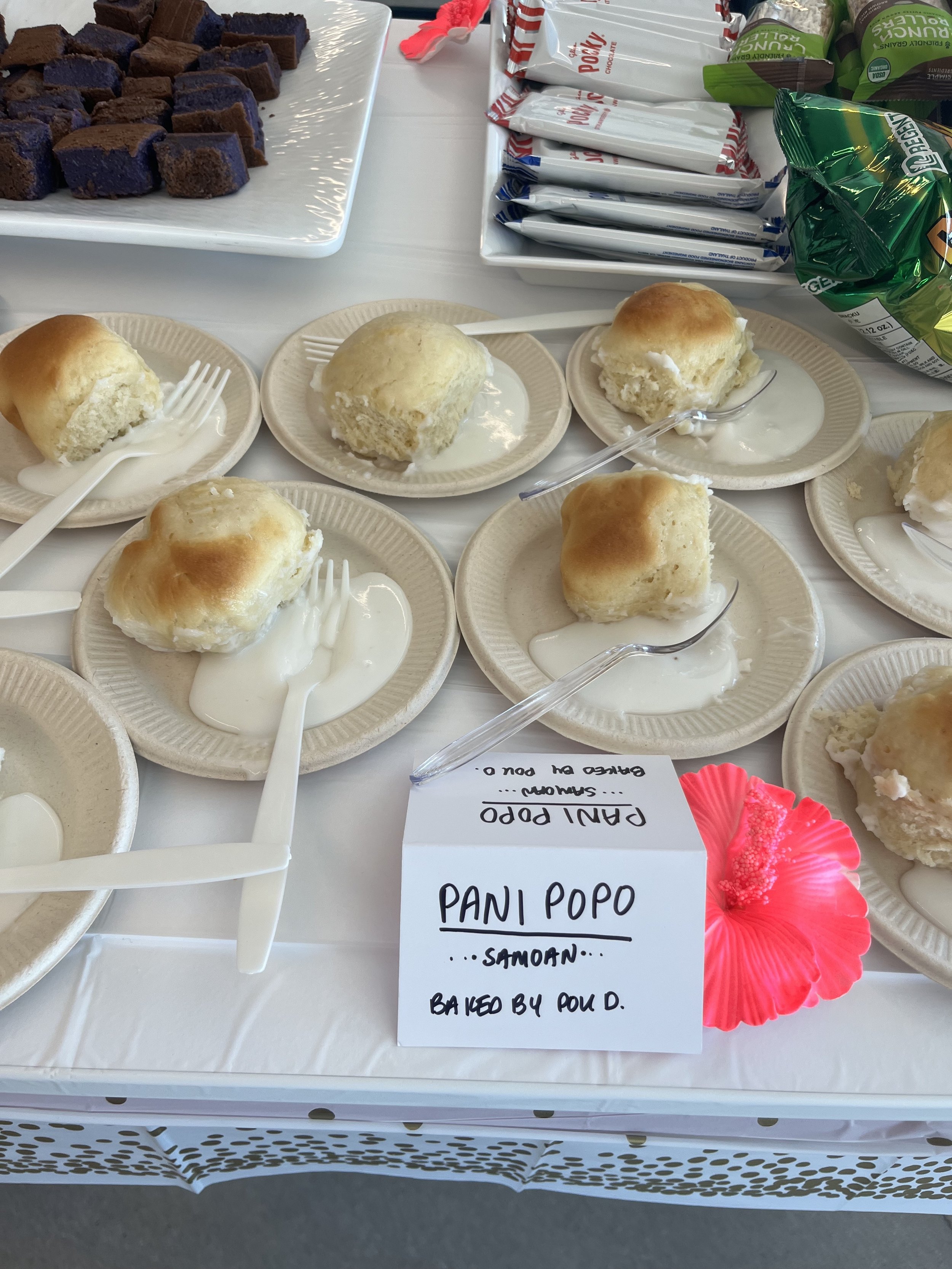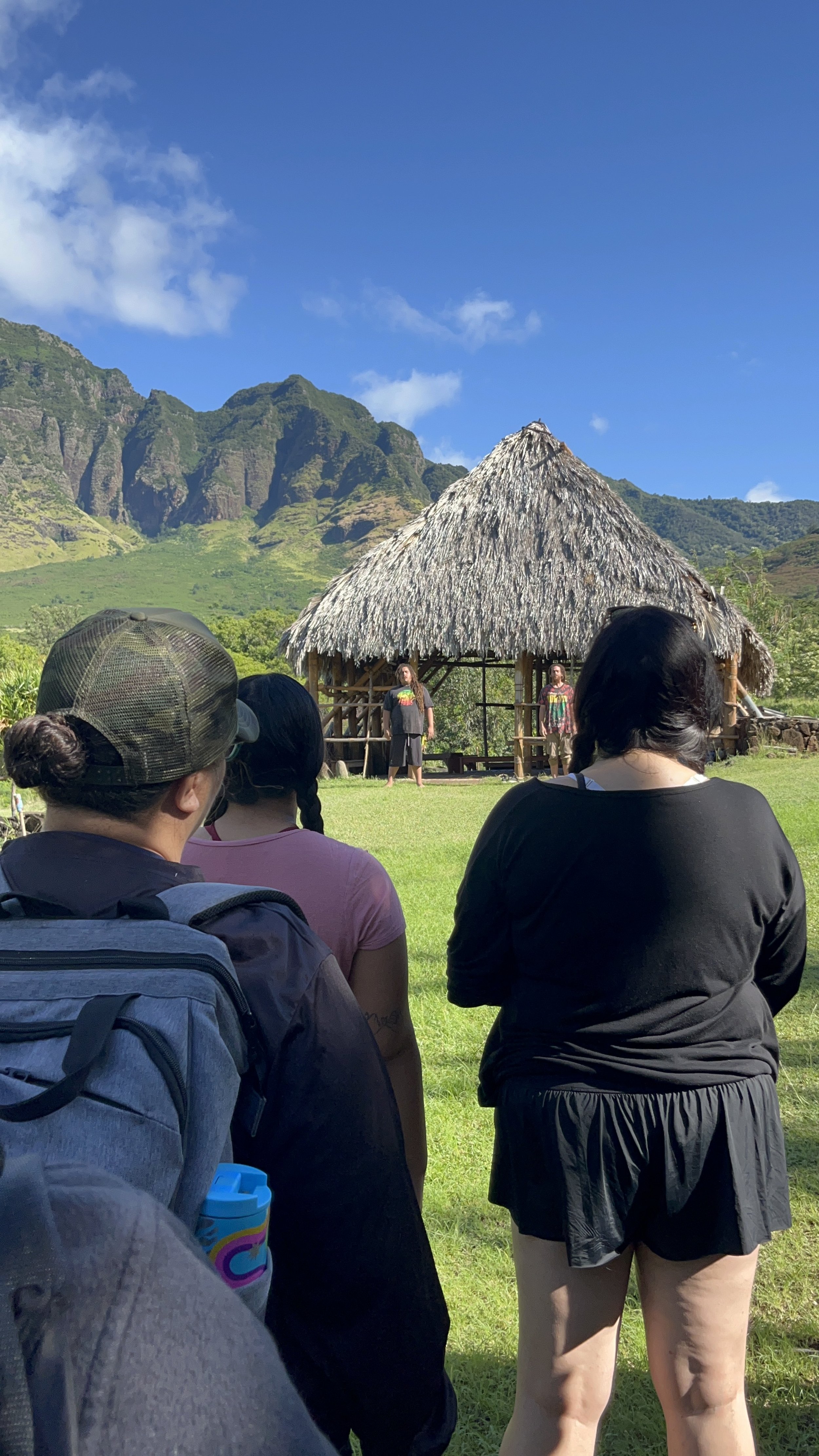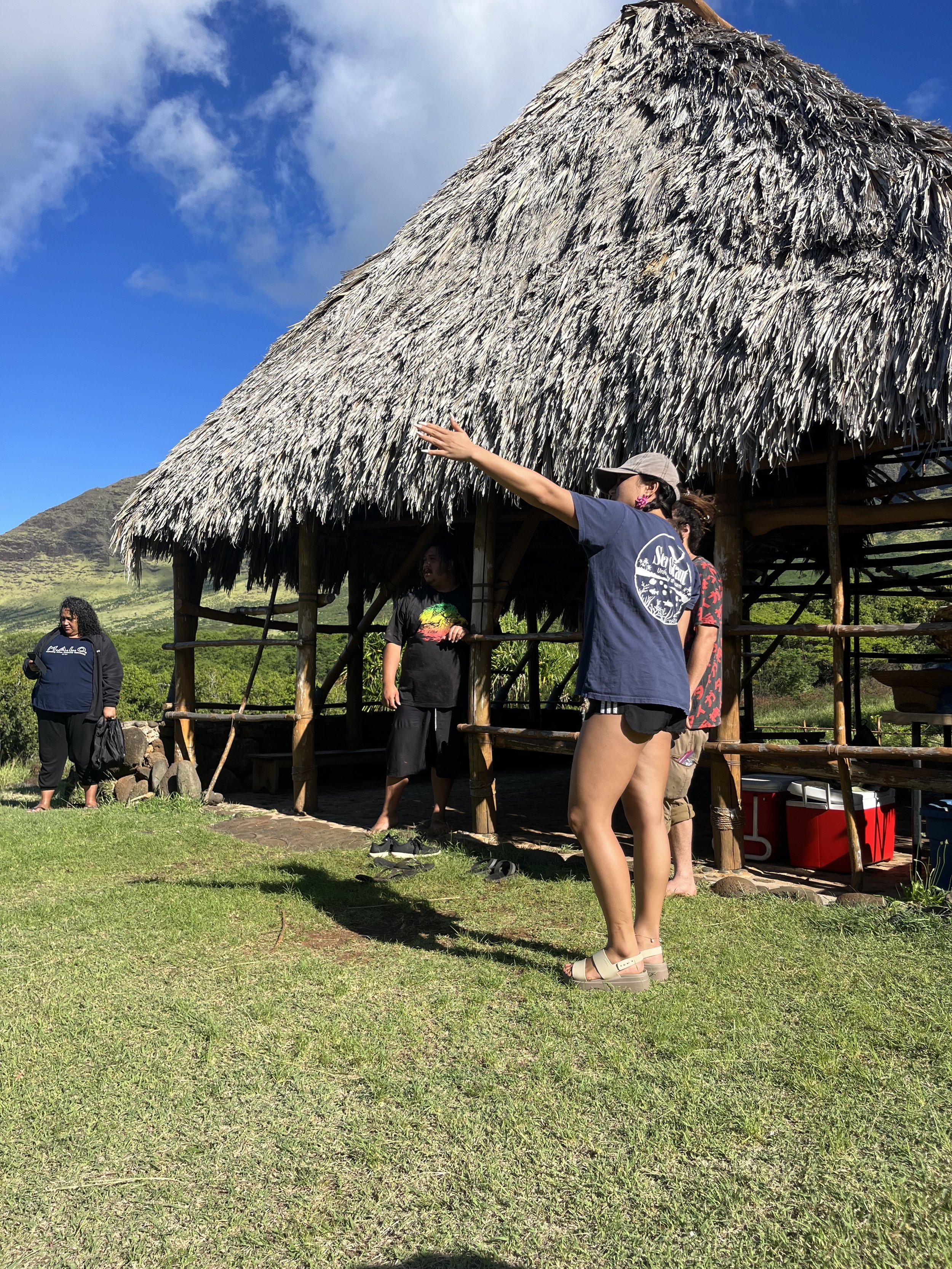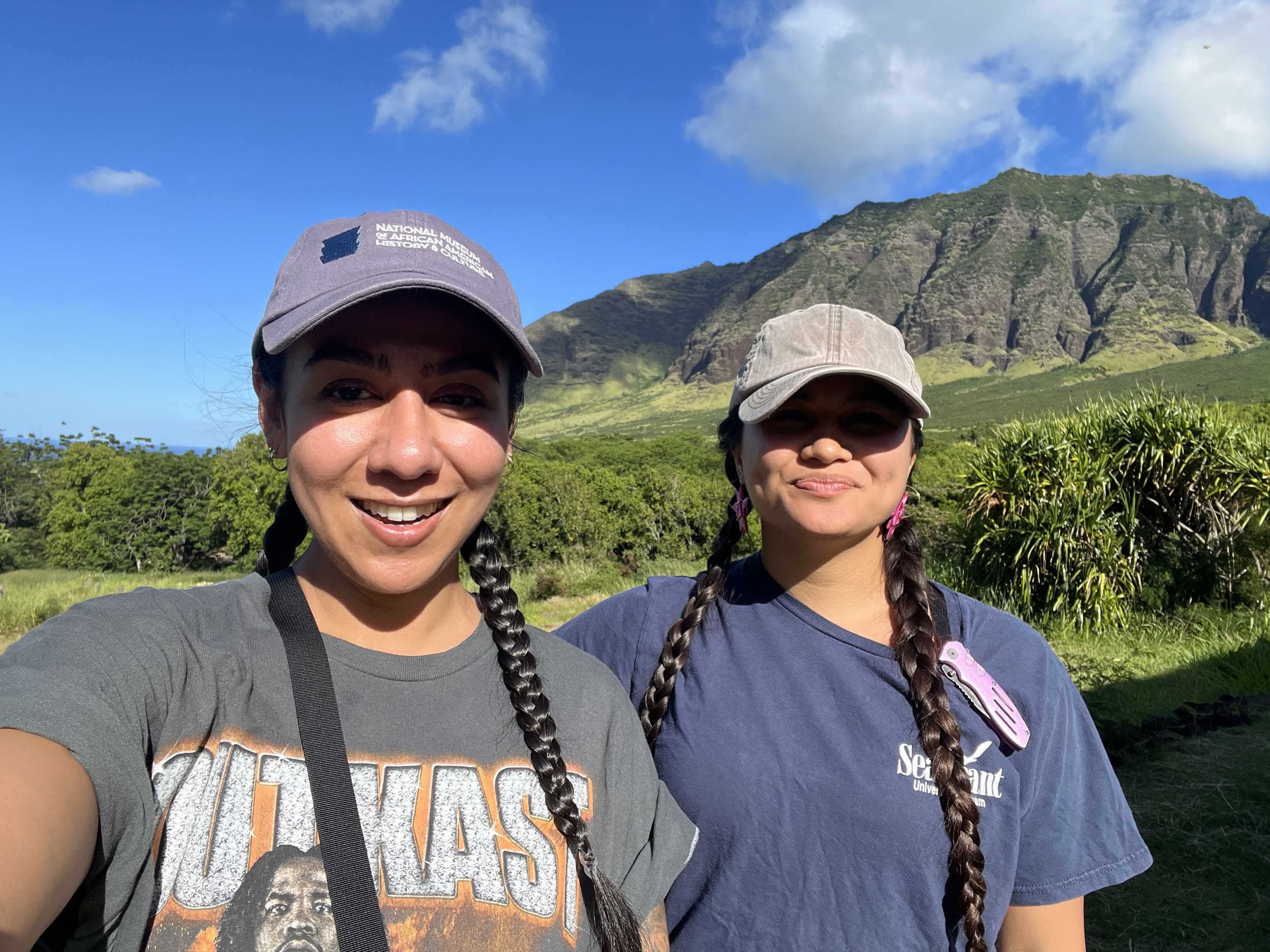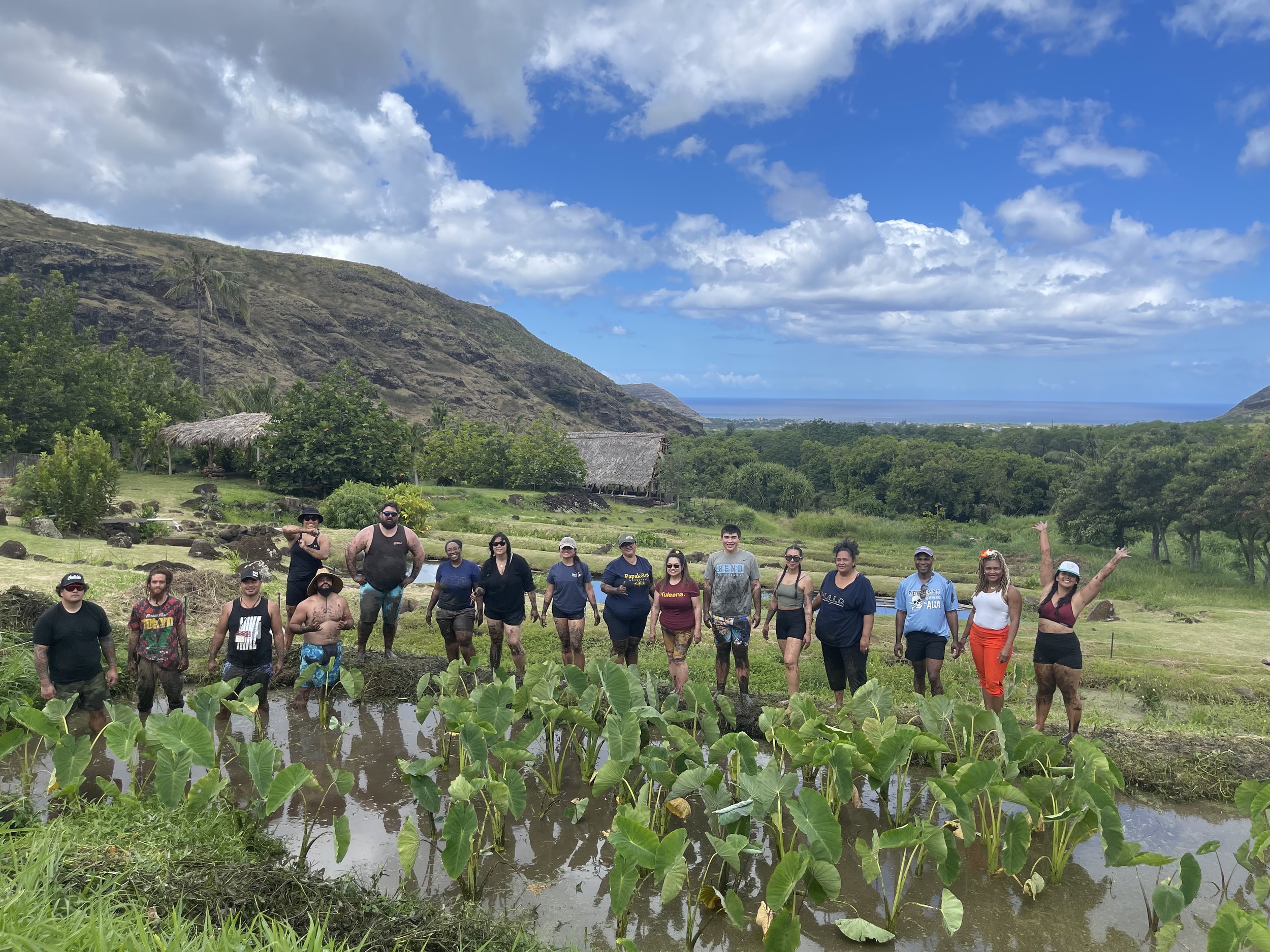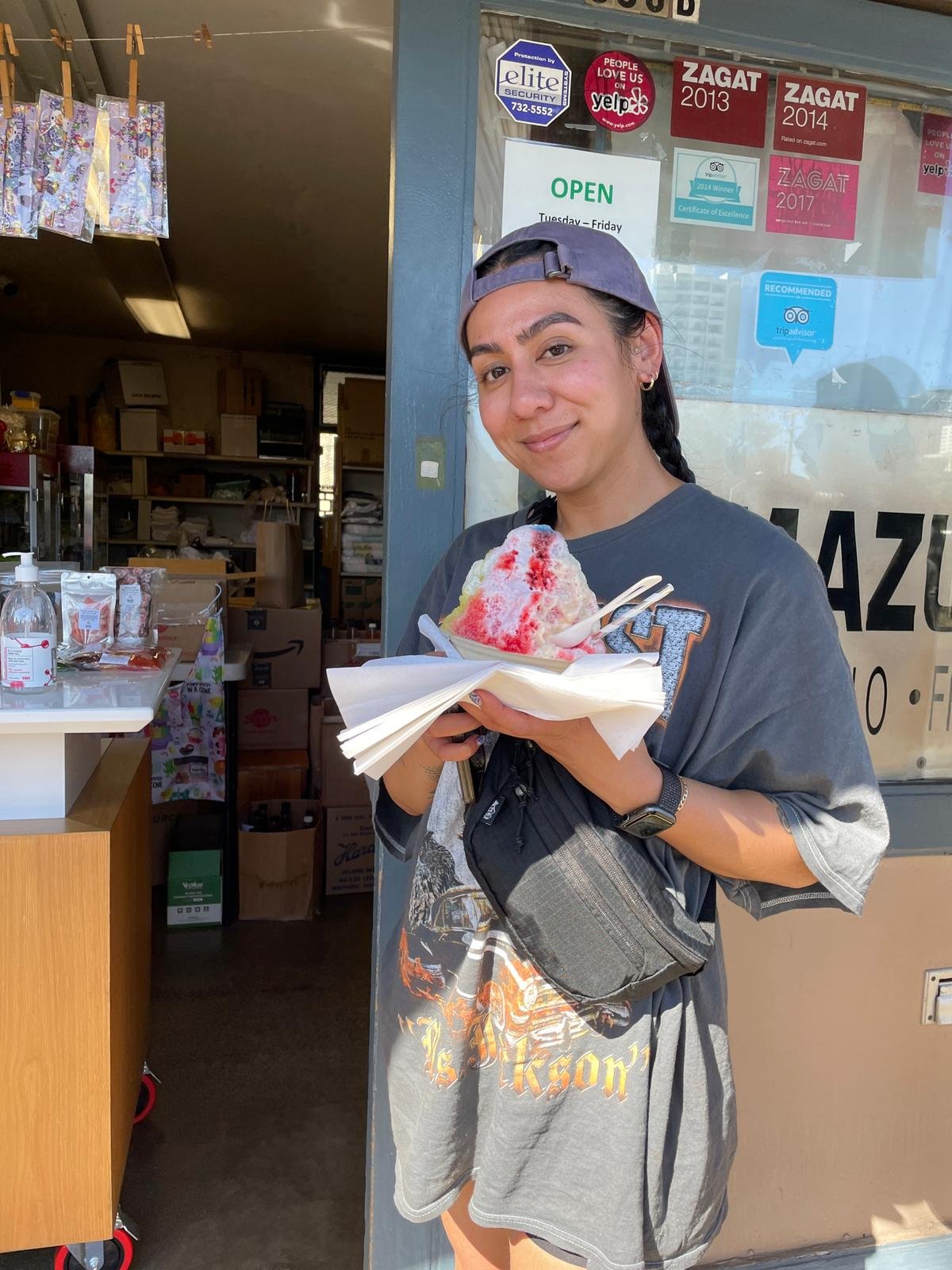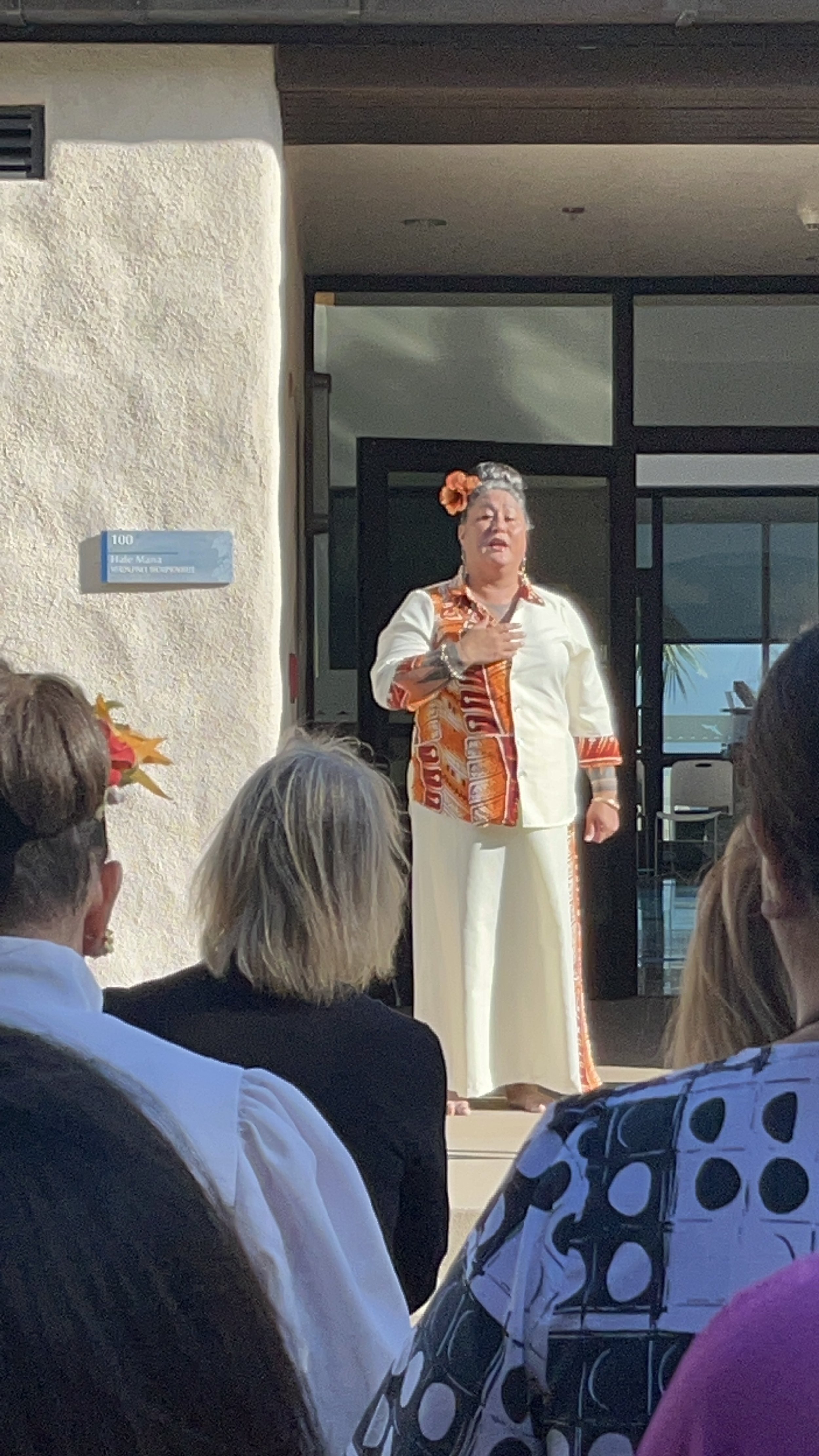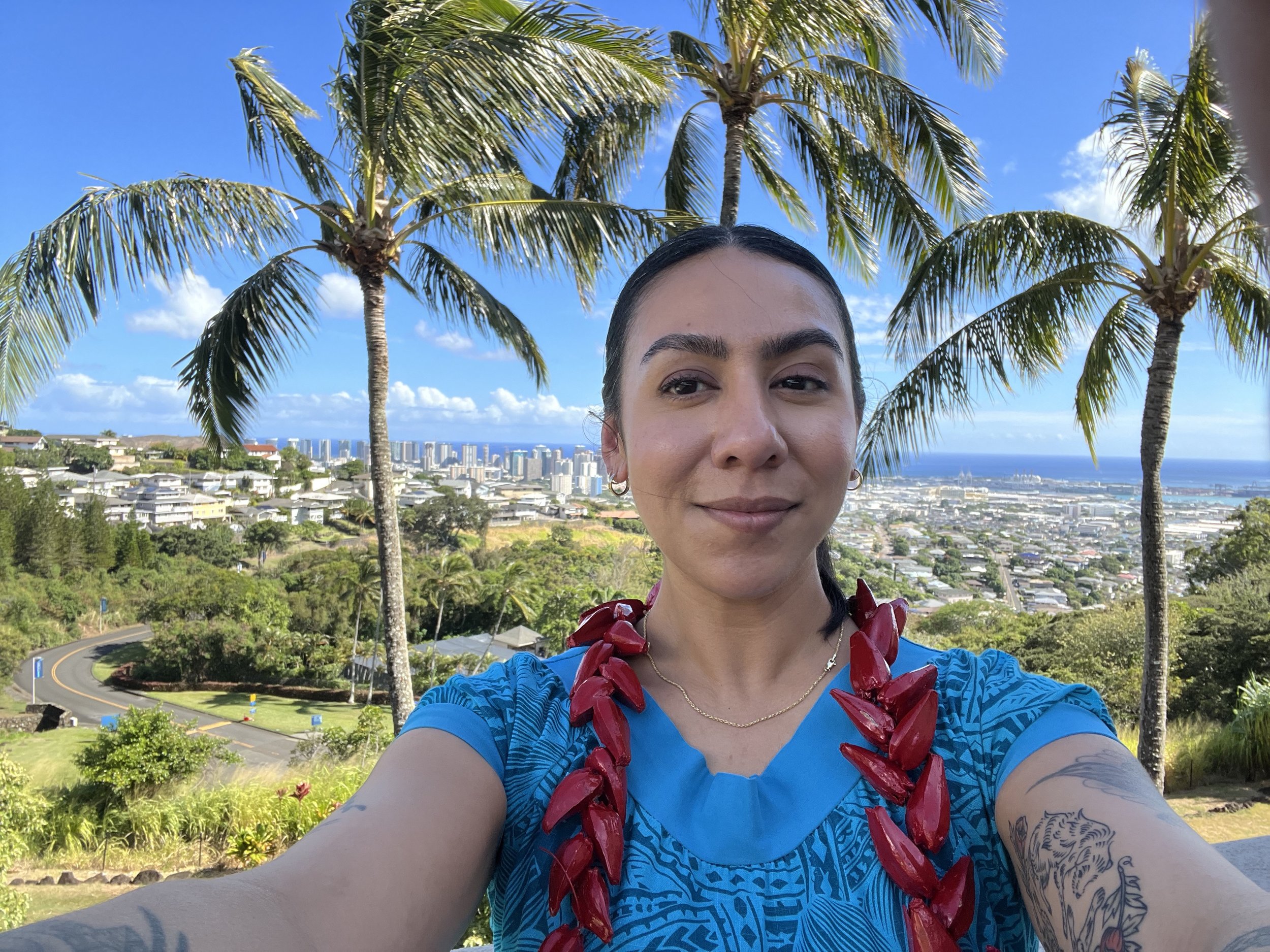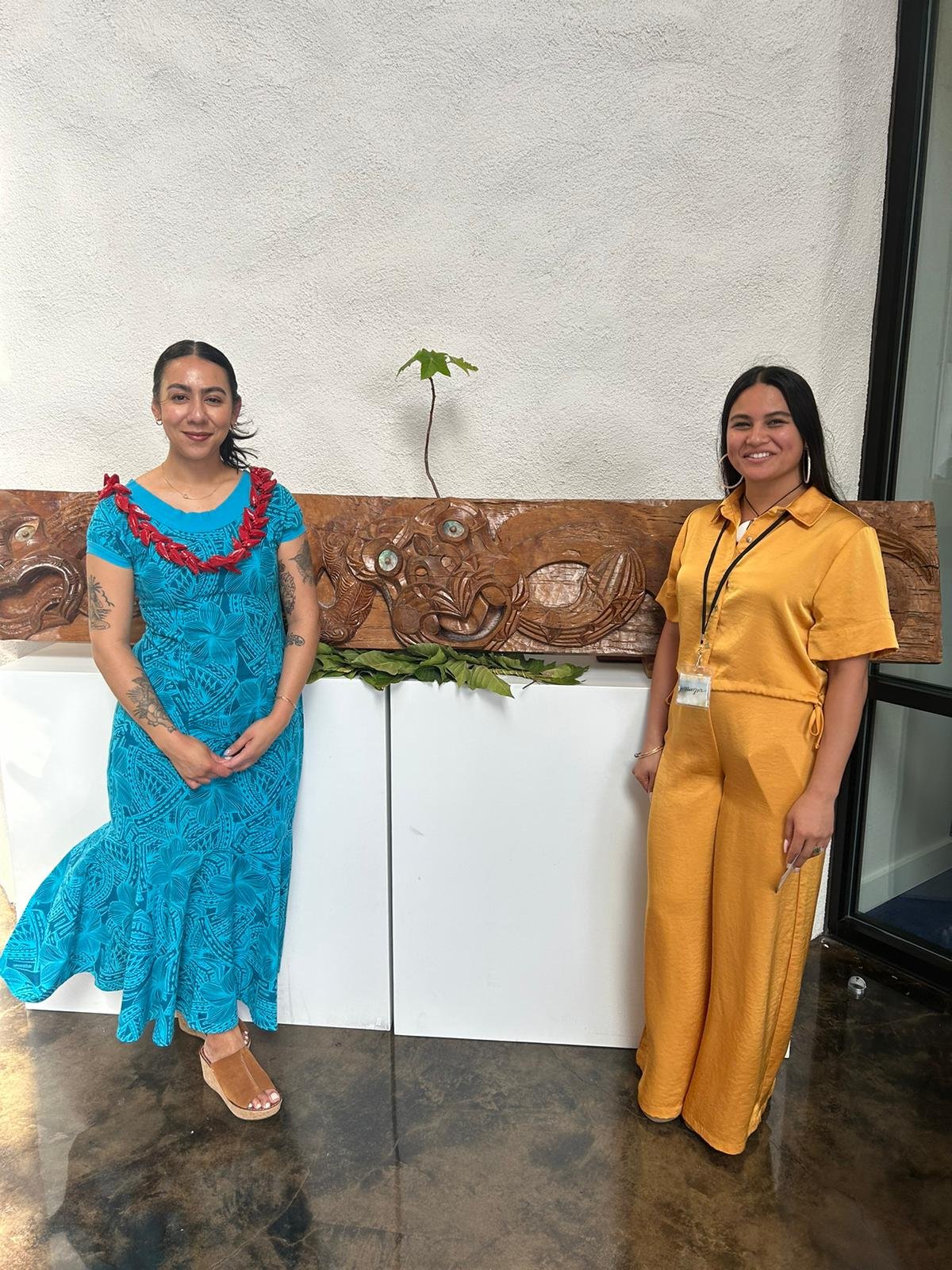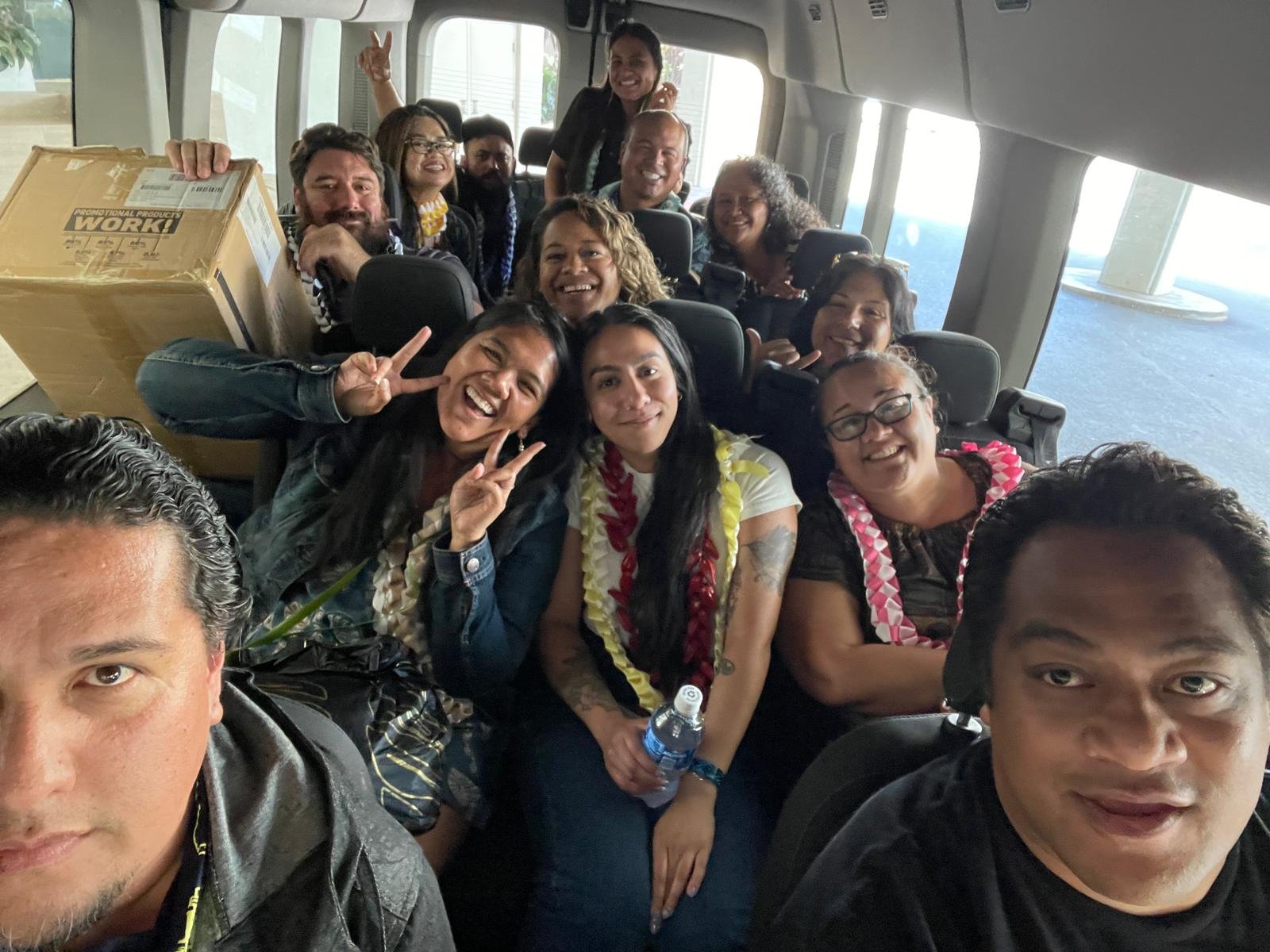NAPALI
At the end of June I spent 10 days on O’ahu with NAPALI, a leadership program founded on Pacific Islander cultural values, and structured around Western professional skill development. The non-profit established in 1998, is a pioneer in its field graduating over 300 fellows since its conception. In the United States, there are far and few programs committed to establishing Pacific Islander leaders; and even fewer for folks post-college. It was an honor to be nominated and sponsored by WESTAF for the NAPALI class of 2023. This year’s cohort was represented by Hawaii, Tongan, Guam, and Samoa. Most of us were over the age of thirty, some were parents, and some grandparents. All of us were at an important inflection point as leaders.
From left to right Lia Barcinas, Ka’imi, Dottie Mataele, Pou Dimitrijevich (me), Kim Caspillo, Lolofi Soakai, Keri Picolla, and Iwalani Raes.
The program was a blend of interactive learning activities, field trips, and lectures. One of our first trips was to Ka’ala Farms in Waianae; where we learned about Hawaiian land tenure systems, and helped pull weeds from the lo’i kalo. Another day, we hiked Diamond Head Rd, from Kapi’olani Community College to Kapi’olani Park, acknowledging sacred sites and collectively mourning their occupation. Throughout the week we talked story with Pacific Islander leaders; they shared their professional journey and the ways in which their communities influenced their trajectory. It was a rare opportunity to learn about Hawaiian history, from Native Hawaiians; and exchange language and cultural traditions across the Pacific diaspora. It was also a lot to absorb and process in a short amount of time. Back in San Francisco, I begin to draw lines between the 'ōlelo no’eau and my professional and personal communities. Here are two key lessons I took away.
We are related to the places we reside, as we are to the people we come from.
At the beginning of the conference, we were asked to introduce ourselves by first identifying the natural geographic features of where we live and/or where we were raised. Environments shape experience; experience shapes perspective. By acknowledging the land, we present folks with a frame of reference to better understand us.
As the global co-chair for the Asian and Pacific Islander employee resource group at Box, one of the biggest challenges we face as an organization is the breadth of our cultural umbrella. How do you build programming that is both inclusive and authentic for 50 ethnic groups with connections to more than 40 countries? We have yet to answer this question, but I believe it begins with acknowledging the vastness of the places, cultural identities, and intersectionality we occupy.
I am a first-generation immigrant, from the island of Samoa. I came to the United States as a toddler, and was raised all over Southern California, from the ports of San Pedro to the palms of the Coachella Valley. For the last decade I have lived in the Bay Area, currently residing in Bernal Heights, a small neighborhood in southeastern San Francisco. My cultural traditions and values are shaped by the village I am from and the places I have traveled. They are unique to me and may differ widely from someone who is third or fourth generation Samoan. No one person could represent the entirety of a culture or community.
Last year, Box API ERG revised its mission statement redirecting focus to community engagement and philanthropy. In the past, more attention was given to educating folks on API identities and cultural traditions. However, the reality is we do not have enough folks volunteering to maintain a regular cadence of programming necessary to support all API cultural events and holidays in a given year. Instead, we focus on celebrating our community, and creating safe environments for folks to show up authentically. Our events are often centered around cultural foods, social gathering, and storytelling. We also invest in and partner with other employee resource groups at Box; and support programs outside of Box that care for and empower our local API communities.
All that said, despite the success of our events and programming, I don’t think it’s enough. I recognize volunteering is a labor of love and not everyone has the time or emotional bandwidth to do it. But I promise the return is priceless. My call-to-action has always been: “If you have the emotional bandwidth and time, use it to invest in your communities.” We need folks to tell their stories, and show up to represent the places and cultural identities that have shaped their experience.
Leadership is as much about serving as it is about steering.
There is a Samoan phrase you say to your driver after arriving safely to your destination: malo le faauli, which means thank you for driving/steering us here. The driver then responds: malo le tapuai, which is a salutation you say to someone you’ve been waiting on. Loosely translated it means “...and good patience to you too.” Leadership in Samoan culture is a balance of service and navigation. In order to know where you’re going, you have to understand where you are. Investing in your community, listening to their concerns, and immersing yourself into the day-to-day will help you develop a better sense of direction.
The NAPALI curriculum focused on servant leadership. We met Pacific Islander leaders in administrative roles advocating on behalf of Native Hawaiians and Pacific Islanders, to secure funding for education, housing, and healthcare. We also met folks working directly with un-housed communities to streamline access to substance abuse care and mental health resources. All of them spoke of the importance of leading from the back; serving first before steering.
O’ahu left me with a renewed sense of purpose to connect Pacific Islanders in Tech. I don’t have all the details outlined right now, but look forward to sharing more in the coming months. With that I’ll leave you with this CHamorro proverb, “I irensia na’lå’la’i espiritu-ta” / “Our heritage gives life to our spirit.”
